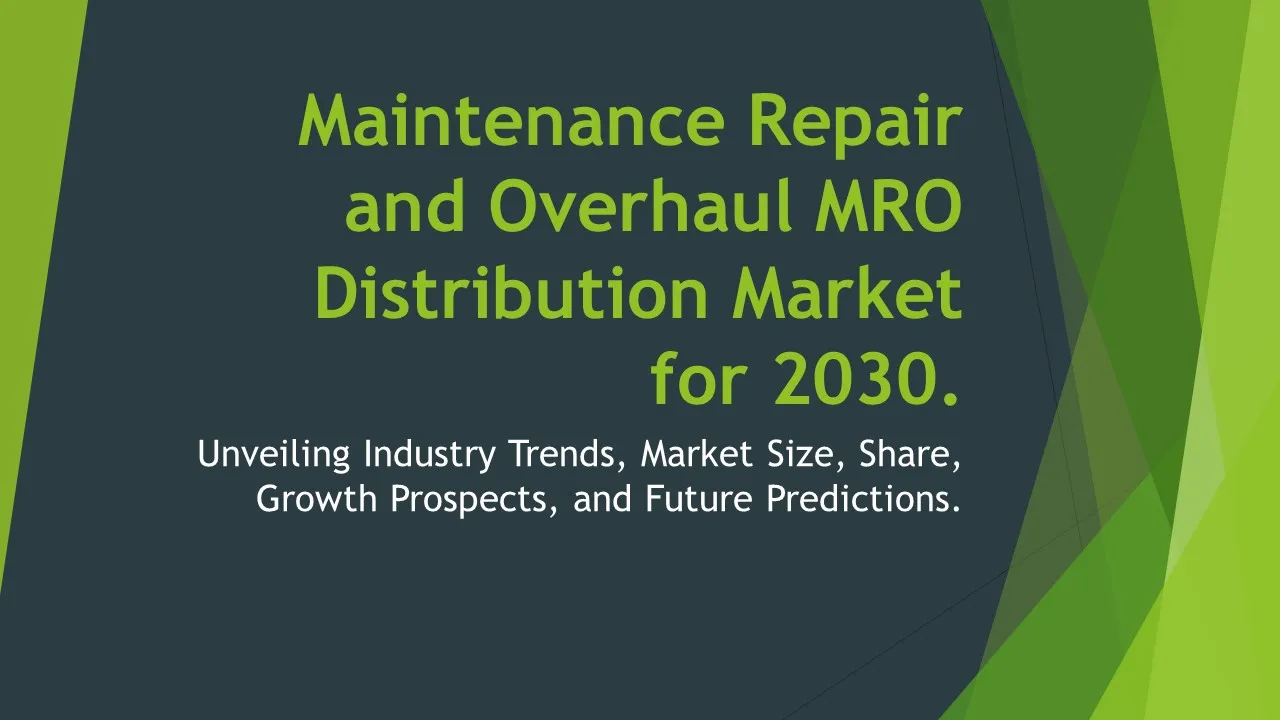Vehicle Test Services
Vehicle Test Services Market Segments - by Service Type (Emissions Testing, Safety Testing, Performance Testing, Durability Testing, and Noise, Vibration & Harshness Testing), Vehicle Type (Passenger Vehicles, Commercial Vehicles, Electric Vehicles, Off-Highway Vehicles, and Two-Wheelers), Testing Type (Physical Testing, Virtual Testing, and On-Road Testing), End-User (Automotive Manufacturers, Regulatory Authorities, Component Suppliers, and Research Institutes), and Region (North America, Europe, Asia Pacific, Latin America, and Middle East & Africa) - Global Industry Analysis, Growth, Share, Size, Trends, and Forecast 2025-2035
- Report Preview
- Table Of Content
- Segments
- Methodology
Vehicle Test Services Market Outlook
The global Vehicle Test Services Market was valued at approximately USD 25 billion in 2022 and is projected to reach around USD 38 billion by 2035, growing at a Compound Annual Growth Rate (CAGR) of 5.5% during the forecast period. This growth is primarily driven by the rising demand for vehicles that comply with stringent environmental regulations and safety standards, alongside the increasing complexity of vehicle systems with the integration of advanced technologies such as electric and autonomous vehicles. Furthermore, the growing emphasis on vehicle safety and performance is propelling automotive manufacturers and regulatory authorities to invest heavily in comprehensive testing services to ensure vehicles meet all regulatory and consumer expectations. Additionally, the surge in vehicle production and sales in emerging economies is creating a wider scope for vehicle testing services, thereby fostering market expansion.
Growth Factor of the Market
Several factors are contributing to the growth of the Vehicle Test Services Market. Firstly, the shift towards electric vehicles (EVs) has necessitated a new set of testing protocols that differ significantly from traditional vehicles, driving demand for specialized testing services. Secondly, increased regulatory pressures aimed at reducing vehicle emissions and enhancing safety standards require automotive manufacturers to engage in more rigorous testing to ensure compliance. Thirdly, advancements in technology, such as the development of sophisticated simulation software and testing equipment, are enabling more efficient and accurate testing processes. Furthermore, the global trend towards sustainability and eco-friendliness is leading manufacturers to seek services that not only validate performance but also ensure environmental compliance. Lastly, the growing importance of consumer safety and satisfaction is pushing manufacturers to prioritize comprehensive vehicle testing, thus propelling market growth.
Key Highlights of the Market
- The market is witnessing a significant shift towards electric vehicle testing services due to increasing global EV adoption.
- Regulatory frameworks worldwide are becoming more stringent, pushing manufacturers to invest in comprehensive testing to ensure compliance.
- Technological advancements in testing methodologies and equipment are enhancing the reliability and efficiency of vehicle testing services.
- Emerging markets are presenting new opportunities for growth, driven by rising vehicle production and investments in automotive infrastructure.
- Integration of advanced technologies such as AI and machine learning in vehicle testing processes is set to improve accuracy and reduce testing time.
By Service Type
Emissions Testing:
Emissions testing has become increasingly crucial in the automotive industry to meet stringent environmental standards and regulations imposed by various governments worldwide. This type of testing measures the pollutants emitted from vehicles, ensuring they comply with legal limits. The growing concern over environmental pollution and climate change is prompting manufacturers to invest heavily in emissions testing services. Furthermore, the rise of electric vehicles is shifting the focus towards new parameters for assessing emissions, making this segment dynamic and vital for the future of the automotive sector.
Safety Testing:
Safety testing encompasses a range of evaluations designed to ensure that vehicles meet the highest safety standards before they hit the market. This includes crash tests, impact assessments, and structural integrity evaluations. With consumer safety being paramount, regulatory authorities are increasingly stringent about safety compliance, thus driving automotive manufacturers to invest in comprehensive safety testing services. The advent of autonomous vehicles has further intensified the focus on safety testing protocols, leading to innovations in testing methodologies that can accurately assess the performance of new technologies under real-world conditions.
Performance Testing:
Performance testing is essential for evaluating a vehicle's operational efficiency, including aspects such as acceleration, braking, and handling. These tests help manufacturers optimize vehicle design and performance characteristics to meet market demands and enhance consumer satisfaction. As competition intensifies among automakers, performance testing services have gained importance, ensuring that vehicles not only meet regulatory standards but also exceed consumer expectations. The integration of advanced telematics and testing technologies is providing manufacturers with more accurate and comprehensive data to refine their products further.
Durability Testing:
Durability testing assesses a vehicle's ability to withstand various stresses over time, simulating the wear and tear it will experience in real-world conditions. This testing ensures that vehicles can maintain performance and safety standards throughout their operational life. As consumers demand long-lasting and reliable vehicles, this segment has gained prominence. Manufacturers are increasingly relying on durability testing to improve product quality and reduce warranty claims, thereby enhancing their market reputation and customer trust in their brand.
Noise, Vibration & Harshness Testing:
This type of testing focuses on evaluating and mitigating unwanted noise and vibrations in vehicles, which can significantly affect passenger comfort and satisfaction. As consumers become more discerning about the overall driving experience, manufacturers are prioritizing NVH testing to ensure a quieter and smoother ride. This segment has also seen advancements in testing technologies, allowing for more precise measurements and improvements in vehicle design to reduce noise and vibration levels. As a result, NVH testing services have become an integral part of the vehicle development process.
By Vehicle Type
Passenger Vehicles:
Passenger vehicles represent the largest segment in the Vehicle Test Services Market, primarily due to the high volume of production and sales. This segment encompasses a wide range of vehicles, including sedans, hatchbacks, and SUVs. As consumer preferences continue to evolve towards more efficient and technologically advanced vehicles, manufacturers are increasingly reliant on testing services to ensure their offerings meet market demand. The ongoing shift towards electric and hybrid models within this segment is also creating new testing requirements, thereby expanding the scope of vehicle testing services.
Commercial Vehicles:
Commercial vehicles, including trucks, vans, and buses, are critical to the global economy, and their testing services are essential to ensure safety, compliance, and performance under demanding conditions. This segment is witnessing robust growth due to the rising need for logistics and transportation services. Manufacturers are investing in testing services to guarantee the reliability and efficiency of their vehicles, especially with the increasing focus on sustainability and emissions reduction in the commercial sector. The growth of e-commerce is further stimulating the demand for commercial vehicles, emphasizing the need for comprehensive testing solutions.
Electric Vehicles:
The electric vehicle segment is rapidly gaining momentum, driven by rising environmental awareness and government incentives to reduce carbon emissions. Testing services for electric vehicles are critical, as they must meet distinct performance and safety standards compared to conventional vehicles. This segment is characterized by a heightened focus on battery performance, energy efficiency, and charging systems. As battery technology evolves, testing protocols must adapt, presenting a significant opportunity for specialized testing services to cater to this emerging market.
Off-Highway Vehicles:
Off-highway vehicles, including agricultural machinery, construction equipment, and recreational vehicles, require specialized testing to ensure their performance in rugged environments. This segment is essential to industries such as agriculture and construction, where reliability and durability are paramount. The increasing adoption of advanced technologies, such as telematics and automation, is challenging manufacturers to rethink their testing approaches and invest in more sophisticated testing services to validate vehicle performance under extreme conditions.
Two-Wheelers:
Two-wheelers, comprising motorcycles and scooters, represent a significant portion of the global vehicle market, particularly in regions with high population density and urban environments. Testing services for this segment focus on safety, emissions, and performance, as consumer preferences shift towards more eco-friendly and efficient options. The growing popularity of electric scooters and motorcycles is driving innovation in testing methodologies, ensuring that new models meet both regulatory standards and consumer expectations for performance and reliability.
By Testing Type
Physical Testing:
Physical testing involves the direct evaluation of vehicle components and systems under controlled conditions to assess performance, safety, and compliance. This testing type includes crash tests, environmental simulations, and durability assessments. As vehicles become more sophisticated, the need for comprehensive physical testing has become increasingly important to validate the effectiveness of design changes and technological advancements. This segment is fundamental to ensuring that vehicles can perform reliably in real-world scenarios, thereby enhancing consumer trust and safety.
Virtual Testing:
Virtual testing utilizes advanced simulation techniques and software to model vehicle performance and safety in a virtual environment. This approach allows manufacturers to conduct extensive evaluations without the time and cost associated with physical testing. As the automotive industry increasingly embraces digital transformation, virtual testing is gaining traction due to its ability to speed up the development process while maintaining accuracy. This segment is particularly beneficial for the early stages of vehicle design, enabling manufacturers to identify and address potential issues before physical prototypes are built.
On-Road Testing:
On-road testing involves evaluating vehicle performance under real-world driving conditions, providing valuable insights into vehicle behavior, handling, and safety. This testing type is crucial for assessing how vehicles respond to various environmental factors and driver inputs. Increasingly, manufacturers are incorporating on-road testing into their development processes to ensure that vehicles perform optimally in diverse scenarios. As the automotive landscape evolves with the introduction of connected and autonomous vehicles, on-road testing is becoming more complex and essential to validate the performance of new technologies.
By User
Automotive Manufacturers:
Automotive manufacturers constitute a significant portion of the Vehicle Test Services Market, as they are the primary users of testing services to ensure compliance with safety and performance standards. These manufacturers rely heavily on testing to validate their designs and innovations, thus ensuring that their vehicles meet regulatory requirements and consumer expectations. The increasing competition in the automotive sector is driving manufacturers to invest in comprehensive testing solutions to enhance product quality and maintain market trust.
Regulatory Authorities:
Regulatory authorities play a vital role in the Vehicle Test Services Market by setting safety and environmental standards for vehicles. These organizations require extensive testing data to ensure that vehicles entering the market comply with legal requirements. As regulations become increasingly stringent, regulatory authorities are investing in advanced testing methodologies to effectively assess vehicle compliance. Their demand for comprehensive and reliable testing services significantly influences the overall market dynamics.
Component Suppliers:
Component suppliers are essential players in the Vehicle Test Services Market, as they provide critical components that must meet stringent quality and performance standards. These suppliers rely on testing services to verify the reliability and safety of their products before they are incorporated into vehicles. The growing trend towards specialization and technological advancements in automotive components is driving these suppliers to invest in comprehensive testing services to ensure their products meet the evolving demands of manufacturers and consumers alike.
Research Institutes:
Research institutes contribute significantly to the Vehicle Test Services Market by conducting studies and tests aimed at advancing automotive technology and safety. These institutes often collaborate with manufacturers and regulatory authorities to enhance testing methodologies and develop innovative solutions. The increasing focus on sustainable and energy-efficient transportation is prompting research institutes to engage in extensive testing services, driving market growth. Their contributions help shape the future of the automotive industry by pushing the boundaries of vehicle technology and performance.
By Region
The Vehicle Test Services Market exhibits significant geographical diversity, with notable growth in various regions. North America dominates the market, accounting for approximately 35% of the global share, primarily due to stringent regulatory standards and a well-established automotive industry. The region is witnessing a steady CAGR of 5.2%, driven by increasing investments in hybrid and electric vehicle testing services. Europe follows closely, representing around 30% of the market, with strong demand for emissions testing and safety compliance, propelled by the European Union's progressive environmental policies.
In Asia Pacific, the market is experiencing rapid growth, anticipated to reach a CAGR of 6.3% during the forecast period, fueled by rising vehicle production and increasing automotive exports. Countries such as China and India are emerging as automotive manufacturing powerhouses, leading to a surge in demand for vehicle testing services. Latin America and the Middle East & Africa represent smaller portions of the market but are expected to see steady growth, driven by increasing vehicle ownership and regulatory developments in these regions. The cumulative growth across these regions illustrates a dynamic and evolving landscape for vehicle testing services worldwide.
Opportunities
The Vehicle Test Services Market presents a myriad of opportunities for growth driven by technological advancements and changing consumer preferences. As the automotive industry increasingly embraces electrification and automation, the demand for specialized testing services tailored to electric and autonomous vehicles is expected to rise significantly. Testing service providers have the chance to innovate and develop new methodologies that address the unique challenges posed by these advanced technologies, thus positioning themselves as leaders in this evolving market. Moreover, the expansion of the automotive market in emerging economies offers a wealth of opportunities for testing services as local manufacturers seek to meet international standards and enhance their competitiveness.
Additionally, the growing focus on sustainability and environmental regulations offers lucrative opportunities for service providers who can deliver compliant and efficient testing solutions. The integration of digital technologies and data analytics into testing processes can also enhance service offerings, providing manufacturers with insightful data that can streamline their development processes and improve vehicle design. As connectivity and smart technologies become integral to modern vehicles, testing services that ensure interoperability and safety in connected environments will be in high demand. These factors collectively create a fertile ground for growth and innovation within the Vehicle Test Services Market.
Threats
Despite the positive outlook, the Vehicle Test Services Market faces several threats that could impede growth. One of the primary threats is the rapid pace of technological changes within the automotive industry, which can make existing testing methodologies obsolete. Service providers need to continuously invest in research and development to keep pace with evolving vehicle technologies and consumer expectations. Additionally, the increasing complexity of vehicle systems, particularly with the rise of electric and autonomous vehicles, poses a significant challenge for testing services to ensure comprehensive and accurate evaluations.
Moreover, the competitive landscape in the Vehicle Test Services Market is becoming increasingly crowded, with numerous players vying for market share. This competition can lead to pricing pressures, impacting profitability for service providers. Furthermore, potential regulatory changes and shifts in environmental policies can create uncertainties in the market, affecting demand for certain testing services. Adapting to these dynamic challenges will be critical for companies to maintain their competitive advantage and ensure long-term sustainability in the market.
Competitor Outlook
- TÜV Rheinland
- SGS S.A.
- Intertek Group plc
- DEKRA SE
- Applus+
- Bureau Veritas
- Element Materials Technology
- KTL Group
- AVQ Testing
- Millbrook Group
- Fichtner
- Ricardo PLC
- Eurofins Scientific
- NSF International
- UL LLC
The competitive landscape of the Vehicle Test Services Market is characterized by a diverse range of established players and emerging companies, all striving to capture a share of this growing market. Major companies like TÜV Rheinland and SGS S.A. have established themselves as leaders, leveraging extensive expertise and a global presence to dominate the market. They offer a comprehensive range of testing services across various vehicle types and are actively investing in advanced technologies to enhance their service offerings. These companies have built strong relationships with automotive manufacturers and regulatory authorities, positioning themselves as trusted partners in the vehicle testing process.
Another notable player, Intertek Group plc, has expanded its footprint in the automotive testing services sector by providing innovative solutions tailored to the needs of manufacturers. The company focuses on emerging technologies, including electric and autonomous vehicles, to address the changing landscape of the automotive industry. Similarly, DEKRA SE has a robust portfolio of testing services and emphasizes safety testing, ensuring vehicles meet the stringent safety regulations required in various markets. Their commitment to quality and reliability has earned them a solid reputation among automotive manufacturers.
Emerging companies such as Applus+ and KTL Group are also making significant strides in the market by focusing on niche areas of vehicle testing, including specialized services for electric vehicles and advanced driver assistance systems (ADAS). These companies are leveraging technological advancements and innovative testing methodologies to carve out their market positions. They are increasingly collaborating with research institutes and manufacturers to develop cutting-edge solutions that meet the evolving demands of the automotive industry. The competitive landscape continues to evolve as companies adapt to new challenges, such as increased environmental regulations and shifting consumer preferences.
1 Appendix
- 1.1 List of Tables
- 1.2 List of Figures
2 Introduction
- 2.1 Market Definition
- 2.2 Scope of the Report
- 2.3 Study Assumptions
- 2.4 Base Currency & Forecast Periods
3 Market Dynamics
- 3.1 Market Growth Factors
- 3.2 Economic & Global Events
- 3.3 Innovation Trends
- 3.4 Supply Chain Analysis
4 Consumer Behavior
- 4.1 Market Trends
- 4.2 Pricing Analysis
- 4.3 Buyer Insights
5 Key Player Profiles
- 5.1 UL LLC
- 5.1.1 Business Overview
- 5.1.2 Products & Services
- 5.1.3 Financials
- 5.1.4 Recent Developments
- 5.1.5 SWOT Analysis
- 5.2 Applus+
- 5.2.1 Business Overview
- 5.2.2 Products & Services
- 5.2.3 Financials
- 5.2.4 Recent Developments
- 5.2.5 SWOT Analysis
- 5.3 DEKRA SE
- 5.3.1 Business Overview
- 5.3.2 Products & Services
- 5.3.3 Financials
- 5.3.4 Recent Developments
- 5.3.5 SWOT Analysis
- 5.4 Fichtner
- 5.4.1 Business Overview
- 5.4.2 Products & Services
- 5.4.3 Financials
- 5.4.4 Recent Developments
- 5.4.5 SWOT Analysis
- 5.5 SGS S.A.
- 5.5.1 Business Overview
- 5.5.2 Products & Services
- 5.5.3 Financials
- 5.5.4 Recent Developments
- 5.5.5 SWOT Analysis
- 5.6 KTL Group
- 5.6.1 Business Overview
- 5.6.2 Products & Services
- 5.6.3 Financials
- 5.6.4 Recent Developments
- 5.6.5 SWOT Analysis
- 5.7 AVQ Testing
- 5.7.1 Business Overview
- 5.7.2 Products & Services
- 5.7.3 Financials
- 5.7.4 Recent Developments
- 5.7.5 SWOT Analysis
- 5.8 Ricardo PLC
- 5.8.1 Business Overview
- 5.8.2 Products & Services
- 5.8.3 Financials
- 5.8.4 Recent Developments
- 5.8.5 SWOT Analysis
- 5.9 Bureau Veritas
- 5.9.1 Business Overview
- 5.9.2 Products & Services
- 5.9.3 Financials
- 5.9.4 Recent Developments
- 5.9.5 SWOT Analysis
- 5.10 Millbrook Group
- 5.10.1 Business Overview
- 5.10.2 Products & Services
- 5.10.3 Financials
- 5.10.4 Recent Developments
- 5.10.5 SWOT Analysis
- 5.11 NSF International
- 5.11.1 Business Overview
- 5.11.2 Products & Services
- 5.11.3 Financials
- 5.11.4 Recent Developments
- 5.11.5 SWOT Analysis
- 5.12 Intertek Group plc
- 5.12.1 Business Overview
- 5.12.2 Products & Services
- 5.12.3 Financials
- 5.12.4 Recent Developments
- 5.12.5 SWOT Analysis
- 5.13 Eurofins Scientific
- 5.13.1 Business Overview
- 5.13.2 Products & Services
- 5.13.3 Financials
- 5.13.4 Recent Developments
- 5.13.5 SWOT Analysis
- 5.14 TÃÂV Rheinland
- 5.14.1 Business Overview
- 5.14.2 Products & Services
- 5.14.3 Financials
- 5.14.4 Recent Developments
- 5.14.5 SWOT Analysis
- 5.15 Element Materials Technology
- 5.15.1 Business Overview
- 5.15.2 Products & Services
- 5.15.3 Financials
- 5.15.4 Recent Developments
- 5.15.5 SWOT Analysis
- 5.1 UL LLC
6 Market Segmentation
- 6.1 Vehicle Test Services Market, By User
- 6.1.1 Automotive Manufacturers
- 6.1.2 Regulatory Authorities
- 6.1.3 Component Suppliers
- 6.1.4 Research Institutes
- 6.2 Vehicle Test Services Market, By Service Type
- 6.2.1 Emissions Testing
- 6.2.2 Safety Testing
- 6.2.3 Performance Testing
- 6.2.4 Durability Testing
- 6.2.5 Noise
- 6.2.6 Vibration & Harshness Testing
- 6.3 Vehicle Test Services Market, By Testing Type
- 6.3.1 Physical Testing
- 6.3.2 Virtual Testing
- 6.3.3 On-Road Testing
- 6.4 Vehicle Test Services Market, By Vehicle Type
- 6.4.1 Passenger Vehicles
- 6.4.2 Commercial Vehicles
- 6.4.3 Electric Vehicles
- 6.4.4 Off-Highway Vehicles
- 6.4.5 Two-Wheelers
- 6.1 Vehicle Test Services Market, By User
7 Competitive Analysis
- 7.1 Key Player Comparison
- 7.2 Market Share Analysis
- 7.3 Investment Trends
- 7.4 SWOT Analysis
8 Research Methodology
- 8.1 Analysis Design
- 8.2 Research Phases
- 8.3 Study Timeline
9 Future Market Outlook
- 9.1 Growth Forecast
- 9.2 Market Evolution
10 Geographical Overview
- 10.1 Europe - Market Analysis
- 10.1.1 By Country
- 10.1.1.1 UK
- 10.1.1.2 France
- 10.1.1.3 Germany
- 10.1.1.4 Spain
- 10.1.1.5 Italy
- 10.1.1 By Country
- 10.2 Asia Pacific - Market Analysis
- 10.2.1 By Country
- 10.2.1.1 India
- 10.2.1.2 China
- 10.2.1.3 Japan
- 10.2.1.4 South Korea
- 10.2.1 By Country
- 10.3 Latin America - Market Analysis
- 10.3.1 By Country
- 10.3.1.1 Brazil
- 10.3.1.2 Argentina
- 10.3.1.3 Mexico
- 10.3.1 By Country
- 10.4 North America - Market Analysis
- 10.4.1 By Country
- 10.4.1.1 USA
- 10.4.1.2 Canada
- 10.4.1 By Country
- 10.5 Middle East & Africa - Market Analysis
- 10.5.1 By Country
- 10.5.1.1 Middle East
- 10.5.1.2 Africa
- 10.5.1 By Country
- 10.6 Vehicle Test Services Market by Region
- 10.1 Europe - Market Analysis
11 Global Economic Factors
- 11.1 Inflation Impact
- 11.2 Trade Policies
12 Technology & Innovation
- 12.1 Emerging Technologies
- 12.2 AI & Digital Trends
- 12.3 Patent Research
13 Investment & Market Growth
- 13.1 Funding Trends
- 13.2 Future Market Projections
14 Market Overview & Key Insights
- 14.1 Executive Summary
- 14.2 Key Trends
- 14.3 Market Challenges
- 14.4 Regulatory Landscape
Segments Analyzed in the Report
The global Vehicle Test Services market is categorized based on
By Service Type
- Emissions Testing
- Safety Testing
- Performance Testing
- Durability Testing
- Noise
- Vibration & Harshness Testing
By Vehicle Type
- Passenger Vehicles
- Commercial Vehicles
- Electric Vehicles
- Off-Highway Vehicles
- Two-Wheelers
By Testing Type
- Physical Testing
- Virtual Testing
- On-Road Testing
By User
- Automotive Manufacturers
- Regulatory Authorities
- Component Suppliers
- Research Institutes
By Region
- North America
- Europe
- Asia Pacific
- Latin America
- Middle East & Africa
Key Players
- TÃV Rheinland
- SGS S.A.
- Intertek Group plc
- DEKRA SE
- Applus+
- Bureau Veritas
- Element Materials Technology
- KTL Group
- AVQ Testing
- Millbrook Group
- Fichtner
- Ricardo PLC
- Eurofins Scientific
- NSF International
- UL LLC
- Publish Date : Jan 21 ,2025
- Report ID : IT-69053
- No. Of Pages : 100
- Format : |
- Ratings : 4.5 (110 Reviews)









